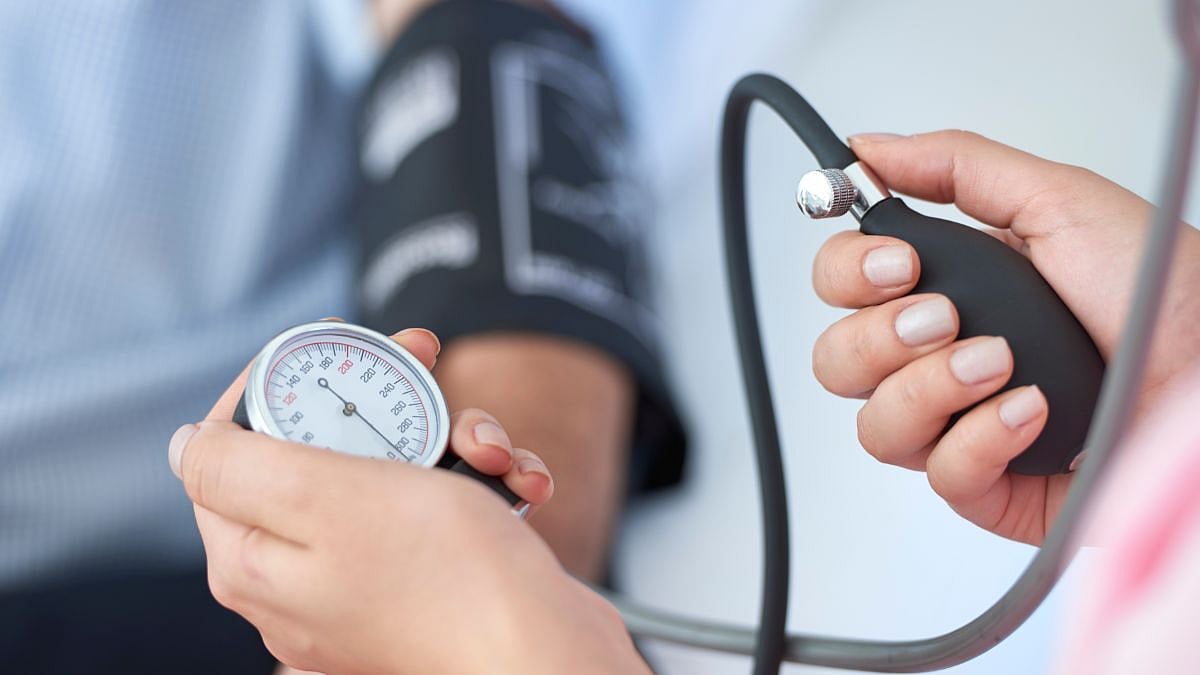Hypertension is referred to as high blood pressure as well. It is a health issue where the blood pressure in your arteries remains consistently elevated beyond the normal range. Every year, World Hypertension Day is observed to promote awareness regarding the prevention and management of high blood pressure.
Elevated blood pressure can additionally result in heart disease. Hypertension has emerged as an epidemic not only in India but globally. It has emerged as the leading cause for patients visiting doctors; the seriousness of the issue simply cannot be overlooked. Let’s talk about Hypertension to gain a deeper insight into its subtleties and the important preventive strategies.
What is blood pressure?
Blood pressure is the force of blood pushing against the walls of your arteries as your heart pumps it around the body. It is measured using two numbers: systolic pressure (when the heart beats) over diastolic pressure (when the heart rests between beats), typically written as 120/80 mmHg. Maintaining normal blood pressure is essential for healthy blood flow and organ function. High blood pressure (Hypertension) can increase the risk of heart disease and stroke, while low blood pressure (hypotension) may cause dizziness and fainting. A balanced lifestyle, including a healthy diet and regular exercise, helps keep blood pressure in check.

World Hypertension Day 2025 | Canva
Biohacking practices can reduce blood pressure
Biohacking, which involves optimizing one’s physiology through various methods, can indirectly contribute to lower blood pressure by improving overall health and reducing the stress of an individual.
Dr. Sajeev Nair, Founder, Vieroots Wellness Solutions, said, “Hypertension is often the result of chronic stress, poor sleep, inflammation, and metabolic imbalances, all of which can be addressed through biohacking. By using genetic insights, wearable data, and lifestyle optimization, biohacking offers a scientific way to reverse the root causes, not just manage symptoms.”
He further said, “It helps you take control of your biology, regulating blood pressure through better sleep, nutrition, stress response, and movement. This isn’t a quick fix; it’s a precision approach to long-term health.”
What are the symptoms of Hypertension?
Hypertension, or high blood pressure, is often called the “silent killer” because it typically has no noticeable symptoms in its early stages. However, when blood pressure reaches dangerously high levels, some people may experience headaches, dizziness, blurred vision, chest pain, shortness of breath, fatigue, or nosebleeds.
These symptoms can indicate a hypertensive crisis and require immediate medical attention. Long-term uncontrolled Hypertension can damage the heart, kidneys, eyes, and brain. Because symptoms are often absent, regular blood pressure checks are essential for early detection and management. Maintaining a healthy lifestyle can help prevent and control high blood pressure effectively.
